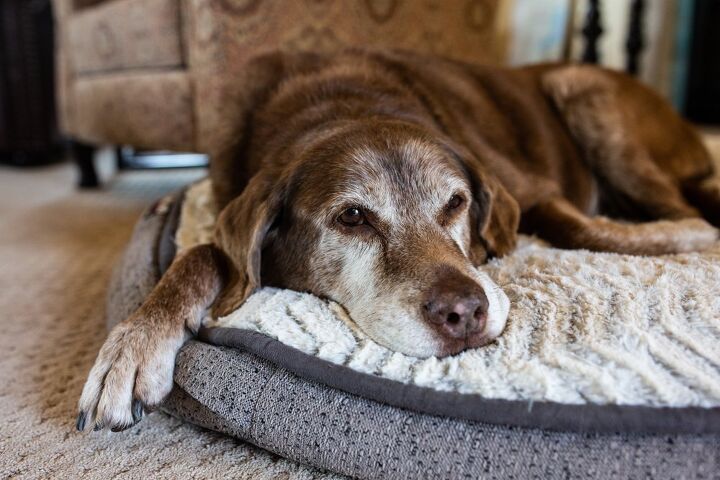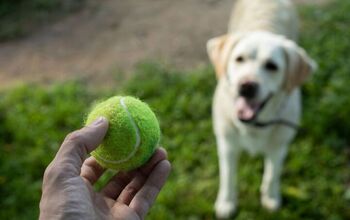What Are the Symptoms of Dementia in Dogs?

As the years go by, health issues tend to pile up, even in canines. Old age can bring a range of problems – some doggos have troubles with arthritis and limited mobility, while others suffer from cognitive decline and experience issues such as dementia. That’s right, even dogs can suffer from dementia, which is also known as canine cognitive dysfunction (CCD). This illness can bring about some troubling changes in your pet’s behavior, and it would be wise to be familiar with all the symptoms of dementia, especially if you are a senior dog owner. Let’s go over them and get familiar with the challenges of canine dementia.
Doggy Dementia: Symptoms and What To Expect
As your pet reaches their golden years, some issues are bound to pop up, including dementia. Known as canine cognitive dysfunction, it has similar symptoms to Alzheimer's disease in humans. The main cause is the aging of the dog’s brain, which results in many troubling issues. Of course, CCD doesn’t happen to all old dogs. Latest studies revealed that it only happens to roughly 50% of dogs that are over 11 years old. Of course, if you own a senior doggo, it is wise to get to know the symptoms of dog dementia. Here are some of the most common ones:
- Confusion and Disorientation:
As dementia sets in, your pet might seem suddenly disoriented and awfully confused. They could get lost in spaces that should be all too familiar to them (the house for example), or could just stand and stare blankly into space.
- Major Sleep Pattern Changes:
Dogs tend to have a solid sleep routine. But with dementia, this can suddenly change. They could experience alterations in their sleep-wake cycle, sleep a lot during the day, and become restless and sleepless throughout the entire night.
- Loss of Interest:
Your dog, with dementia, could suddenly become a totally different pet. They could lose all interest in common interactions. They could have zero interest in playing with you or interacting with the family members. The same goes for interacting with other pets, or playing with toys - even if they were their favorites.
- Forgetting Housetraining:
As dementia progresses, your pet can suddenly forget all that they had learned in the past. The usual routines can be gone, the house rules that they followed will be forgotten, and accidents could become common. You could find that your pet suddenly defecates indoors, seemingly forgetting that it is a no-no. You must be understanding of this and not punish your pet. Instead, arm yourself with patience and a special odor and stain remover that can make cleaning quick and easy.
- Anxiety and Odd Behavior:
Dogs with dementia are anything but their old normal self. You may notice that your pet is wandering aimlessly around the house or in the park, or that they are pacing to and fro in small spaces. They could also develop anxiety and become louder than they were before.
It's important to note that these symptoms can also be indicative of other health issues, and a proper diagnosis should be made by a veterinarian. If you notice any changes in your dog's behavior or cognition, it's recommended to seek veterinary advice promptly. Early detection and intervention can help manage the symptoms and improve the quality of life for dogs with dementia. Make sure that they get enough mental stimulation throughout their life, especially in their senior years.
Special mental stimulation toys can help improve their cognitive abilities and reduce symptoms of dementia for a little bit. Ultimately, remember to be kind and understanding towards your old pooch in this trying time for them as that’s the best thing you can do to help them feel at ease and safe.

A proud mama to seven dogs and ten cats, Angela spends her days writing for her fellow pet parents and pampering her furballs, all of whom are rescues. When she's not gushing over her adorable cats or playing with her dogs, she can be found curled up with a good fantasy book.
More by Angela Vuckovic

























